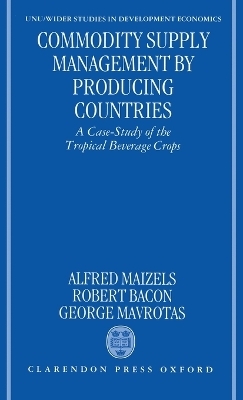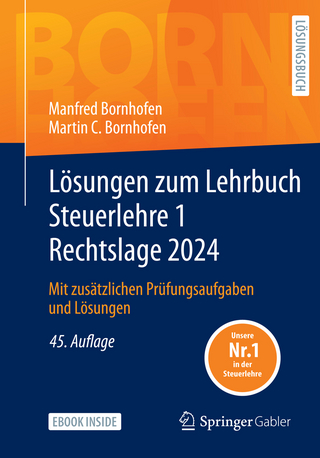
Commodity Supply Management by Producing Countries
A Case-Study of the Tropical Beverage Crops
Seiten
1997
Oxford University Press (Verlag)
978-0-19-823338-1 (ISBN)
Oxford University Press (Verlag)
978-0-19-823338-1 (ISBN)
The collapse in commodity prices since 1980 have been a major cause of the economic crisis in a large part of the Third World. This book demonstrates, using new econometric models, that the producing countries could have prevented this price collapse by appropriate supply management.
The collapse in commodity prices since 1980 has been a major cause of the economic crisis in a large number of developing countries. This book investigates whether the commodity-producing countries, by joint action, could have prevented the price collapse by appropriate supply management.
The analysis is focused on the markets for the tropical beverage crops: coffee, cocoa, and tea. Using new econometric models for each market, the impact of alternative supply management schemes on supply, consumption, prices, and export earnings is simulated for the later 1980s. The results indicate that supply management by producing countries would, indeed, have been a viable alternative to the `free market' approach favoured by the developed countries. This has important implications for current international commodity policy, and, in particular, for future joint action by producing countries to overcome persistent commodity surpluses as a complement to needed diversification.
The collapse in commodity prices since 1980 has been a major cause of the economic crisis in a large number of developing countries. This book investigates whether the commodity-producing countries, by joint action, could have prevented the price collapse by appropriate supply management.
The analysis is focused on the markets for the tropical beverage crops: coffee, cocoa, and tea. Using new econometric models for each market, the impact of alternative supply management schemes on supply, consumption, prices, and export earnings is simulated for the later 1980s. The results indicate that supply management by producing countries would, indeed, have been a viable alternative to the `free market' approach favoured by the developed countries. This has important implications for current international commodity policy, and, in particular, for future joint action by producing countries to overcome persistent commodity surpluses as a complement to needed diversification.
| Erscheint lt. Verlag | 10.7.1997 |
|---|---|
| Reihe/Serie | WIDER Studies in Development Economics |
| Zusatzinfo | line figures, tables |
| Verlagsort | Oxford |
| Sprache | englisch |
| Maße | 144 x 224 mm |
| Gewicht | 459 g |
| Themenwelt | Wirtschaft ► Betriebswirtschaft / Management ► Finanzierung |
| Wirtschaft ► Volkswirtschaftslehre ► Makroökonomie | |
| Wirtschaft ► Volkswirtschaftslehre ► Mikroökonomie | |
| Wirtschaft ► Volkswirtschaftslehre ► Ökonometrie | |
| ISBN-10 | 0-19-823338-8 / 0198233388 |
| ISBN-13 | 978-0-19-823338-1 / 9780198233381 |
| Zustand | Neuware |
| Haben Sie eine Frage zum Produkt? |
Mehr entdecken
aus dem Bereich
aus dem Bereich
Allgemeines Steuerrecht, Abgabenordnung, Umsatzsteuer
Buch (2024)
Springer Gabler (Verlag)
28,00 €
Unternehmensübernahmen und Finanzierungsstrukturen
Buch | Hardcover (2024)
Vahlen (Verlag)
129,00 €


